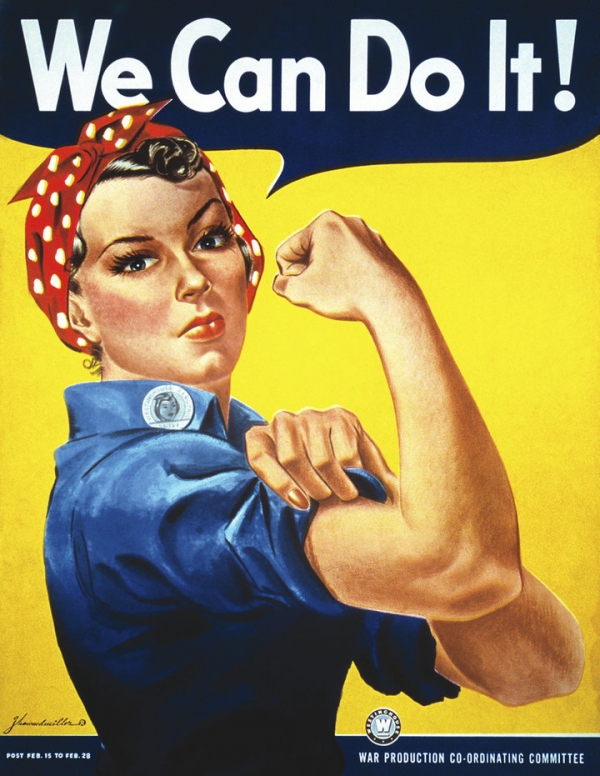While we are all equal in the eyes of the law, men and women are fundamentally different starting before birth, as genetics teaches us. Even in the medical field, symptoms and treatment protocols for diseases are differentiated by sex. But the history of humanity has led to stereotypes we are all too familiar with: women tend to develop more feminine personality traits, such as being more emotional and nurturing, while men meet the needs of providing for the family.
If we take a closer look at these aspects – family and professional life – studies have shown that, on the contrary, 60% of women in a professional environment must also meet their family commitments, compared to 40% of men. Very often, this is perceived as a kind of distraction from work. However, women prove that efficiency does not necessarily come from the time spent in the workplace. Instead, it requires permanent adaptability and optimal time management. The Scandinavian countries have long understood that men can also take care of their families. But elsewhere, a man who stays home to care for his children remains misunderstood. However, as governments and policies have lagged behind in the pursuit of gender equality, private initiatives of large multinationals have emerged to take the lead, such as the paid paternity leave policies at Netflix or Microsoft.
We're all different, but must go hand in hand
Friday, 03/08/2019Discussions on gender equality are increasing, but the debate remains taboo. In a male-dominated professional world, I have at times felt discriminated and had to work far harder to get recognised than my male counterparts. Gender differences exist, but seeing how they complement each other is a way to build a future based on respect, tolerance and goodwill.

We are fundamentally different but equal
Difference should not be an issue of power
The intrapersonal characteristics of women are also synonymous with success. Historically, successful companies were mainly run by men. In the collective imagination, a man represents management, authority and power. But in today's fast-changing world, it appears that women's emotional side, or participatory leadership, is an asset for senior positions in companies seeking radical change. In recent years, I have seen a profound change in the integration and recognition of women in our profession. But there is still a long way to go...
We have an undeniable opportunity: to have been born in a country where we can freely discuss our concerns and work together to find solutions. But the majority of women in this world are not so fortunate. And, in fact, their conditions are getting worse, perhaps because their existence, their individuality, their participation is perceived as a power issue.
Throughout my career, I have had the opportunity to work with women from all walks of life and all social strata who have deeply inspired me with their tenacity, positive outlook and selfless determination. These are the women who keep me from doubting. It is their qualities that inspire me and make me want to say: “We're all different, but must go hand in hand.”
Disclaimer
This marketing document has been issued by Bank Syz Ltd. It is not intended for distribution to, publication, provision or use by individuals or legal entities that are citizens of or reside in a state, country or jurisdiction in which applicable laws and regulations prohibit its distribution, publication, provision or use. It is not directed to any person or entity to whom it would be illegal to send such marketing material. This document is intended for informational purposes only and should not be construed as an offer, solicitation or recommendation for the subscription, purchase, sale or safekeeping of any security or financial instrument or for the engagement in any other transaction, as the provision of any investment advice or service, or as a contractual document. Nothing in this document constitutes an investment, legal, tax or accounting advice or a representation that any investment or strategy is suitable or appropriate for an investor's particular and individual circumstances, nor does it constitute a personalized investment advice for any investor. This document reflects the information, opinions and comments of Bank Syz Ltd. as of the date of its publication, which are subject to change without notice. The opinions and comments of the authors in this document reflect their current views and may not coincide with those of other Syz Group entities or third parties, which may have reached different conclusions. The market valuations, terms and calculations contained herein are estimates only. The information provided comes from sources deemed reliable, but Bank Syz Ltd. does not guarantee its completeness, accuracy, reliability and actuality. Past performance gives no indication of nor guarantees current or future results. Bank Syz Ltd. accepts no liability for any loss arising from the use of this document. (6)
